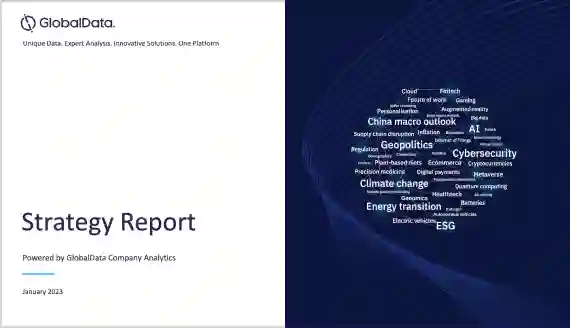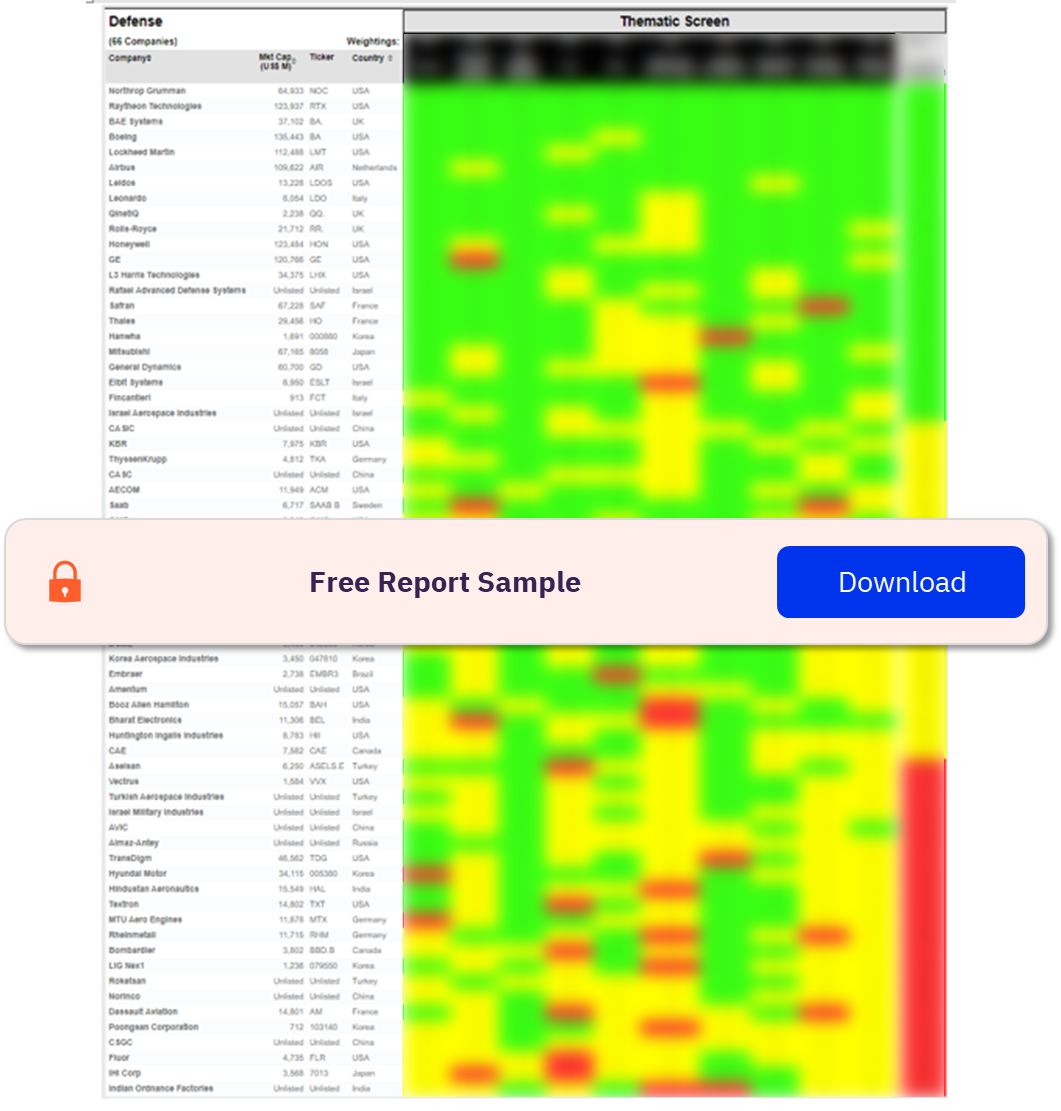Space Sustainability – Thematic Intelligence
Powered by ![]()
All the vital news, analysis, and commentary curated by our industry experts.
Space Sustainability Thematic Report Overview
Space sustainability describes the practice of improving the safety and integrity of the space environment for continued human use. This includes regulations to control activity in space, the development and implementation of standards, and continued incentivization of better practices in the space industry going forward. The potential impact of challenges faced while trying to maintain sustainability in the space environment can range from modest interference with individual satellites to catastrophic damages to crucial spacecraft and satellite constellations. International cooperation is essential to come up with methods to overcome the challenges of space sustainability.
The Space Sustainability thematic intelligence report provides an overview of the current landscape, including technology, macroeconomic, and regulatory trends, as well as key players and value chains. The report provides an industry-specific analysis based on GlobalData databases and surveys.
| Report Pages | 52 |
| Regions Covered | Global |
| Value Chains | · Reusable Launching Vehicles
· Ground-Based Operations · In-Orbit Manufacturing and Servicing · Active Debris Removal (ADR) Operations |
| Leading Public Companies | · Aerojet Rocketdyne
· Airbus · Arianespace |
| Leading Private Companies | · Accion Systems
· AI Space Factory · Astroscale |
| Enquire & Decide | Discover the perfect solution for your business needs. Enquire now and let us help you make an informed decision before making a purchase. |
Space Sustainability – Key Trends
The main trends shaping the space sustainability theme over the next 12 to 24 months are technology, macroeconomic, and regulatory trends.
- Technology trends: The key technology trends impacting the theme are mega-constellations, reusable launch vehicles, the militarization of space, on-orbit servicing and manufacturing, and ASAT weapons.
- Macroeconomic trends: The macroeconomic trends impacting the theme are digital economy, AI, multipolarity, and climate change.
- Regulatory trends: Outer Space Treaty, UN COPUOS, Registration Convention, Liability Convention, the UK’s Space Sustainability Standard, and Orbital Debris Mitigation Standard Practices are the regulatory trends impacting the space sustainability theme.
Space Sustainability – Industry Analysis
Active Debris Removal (ADR) refers to the process of sending spacecraft into orbit to remove debris physically. All spacecraft and spaceflights are enabled by painstaking and highly precise engineering, keeping very specific goals and capabilities in mind. There is often very little room for ‘flexibility’ in a spacecraft’s capabilities since mass and size are crucial considerations in this regard. The continued development of ADR operations is a long way from maturation, but it has the potential to recalibrate the entire industry’s approach to risk and mitigation. As a whole, this segment of the industry is firmly in the R&D and demonstration phase but is central to how the future of space sustainability is envisaged.
The Space Sustainability industry analysis also covers:
- Challenges for space sustainability
- Timeline
Buy the Full Report for More Insights into the Space Sustainability Theme
Space Sustainability in Packaging - Value Chain Analysis
The space sustainability value chain can be broken down into four broad categories: reusable launching vehicles, ground-based operations, in-orbit manufacturing and servicing, and active debris removal (ADR) operations. In-orbit manufacturing and servicing and ADR operations are responsible for maintaining the space environment for human use and enabling further development. Reusable launching vehicles and ground-based operations are vital for initiating and controlling the later categories.
Ground operations (tracking/GSaaS): The abundance of satellite usage in combination with growing cloud and networking capabilities has given rise to the concept of ‘ground stations as a service’ or GSaaS. Satellite operators seek to benefit from large networks of expensive and technologically complex ground stations such as radar arrays, Lidar sensors, and other spectrometry systems without directly investing in the equipment themselves. Moreover, controlling multiple satellites in various orbits would require the ground equipment to be in specific locations, such as on the North and South Poles.
Space Sustainability Value Chain Analysis
Buy Full Report for More Insights into the Space Sustainability Value Chain
Public Companies
Some of the leading listed public players associated with this theme are:
- Aerojet Rocketdyne
- Airbus
- Arianespace
Private Companies
Some of the interesting private companies associated with this theme are:
- Accion Systems
- AI Space Factory
- Astroscale
Buy Full Report to Know More About the Leading Public and Private Space Sustainability Companies
Aerospace, Defense & Security Sector Scorecard Sector Scorecard
At GlobalData, we use a scorecard approach to predict tomorrow’s leading companies within each sector. Our sector scorecard has three screens: a thematic screen, a valuation screen, and a risk screen.
- The thematic screen ranks companies based on overall leadership in the 10 themes that matter most to their industry, generating a leading indicator of future performance.
- The valuation screen ranks our universe of companies within a sector based on selected valuation metrics.
- The risk screen ranks companies within a particular sector based on overall investment risk.
Aerospace, Defense & Security Sector Scorecard – Thematic Screen
Buy Full Report to Know More About the Sector Scorecards
Scope
This report provides:
- The key sustainability challenges that the space industry faces.
- The investment opportunities for prime contractors, suppliers, and institutional investors across the whole space sustainability value chain.
- Highlights from the range of different sustainability programs currently being undertaken by various space companies.
Key Highlights
• Studies of emerging technological trends and their broader impact on the market.
• Analysis of the various space sustainability programs currently under development, as well historical research initiatives.
Reasons to Buy
- Determine potential investment companies based on trend analysis and market projections.
- Gaining an understanding of the market challenges and opportunities surrounding the space sustainability theme.
- Understanding how spending on space sustainability s will fit into the overall market and which spending areas are being prioritized.
Raytheon
Elbit Systems
Leonardo
IAI
Boeing
Telespazio
Blue Origin
Northrop Grumman
General Dynamics
Lockheed Martin
Astroscale
ClearSpace
Stratasys
Thales
ULA
CASC
Teledyne
Honeywell
Kongsberg
Orien Space
Space Pioneer
Exotrail
Maxar
Ball Aerospace
Callisto
AWS
Microsoft
PLD Space
Obruta
Space Forge
Made in Space
Additive Space Technologies
3D Systems Corp
Protolabs
Skygate Technologies
Table of Contents
Frequently asked questions
-
What are the components of the space sustainability value chain?
The space sustainability value chain can be broken down into four categories which are reusable launching vehicles, ground-based operations, in-orbit manufacturing and servicing, and active debris removal (ADR) operations.
-
Who are the leading public companies in the space sustainability industry?
Some of the leading public companies associated with the space sustainability theme are Aerojet Rocketdyne, Airbus, and Arianespace.
-
Who are the leading private companies in the space sustainability industry?
Some of the leading private companies associated with the space sustainability theme are Accion Systems, AI Space Factory, and Astroscale.
Get in touch to find out about multi-purchase discounts
reportstore@globaldata.com
Tel +44 20 7947 2745
Every customer’s requirement is unique. With over 220,000 construction projects tracked, we can create a tailored dataset for you based on the types of projects you are looking for. Please get in touch with your specific requirements and we can send you a quote.
Related reports
View more Space Systems reports












